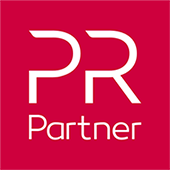Read the full article on the PR Boutiques International blog.
Briefing a new PR agency is the most crucial preparation for a successful relationship with your company. The agency will require significant input from your company, from the time you meet with them to ask for a proposal to the post-hire briefing and frequently throughout their work. Here are four key questions you will need to answer when working with a PR agency. The answers to these questions will determine the strategies the PR firm will recommend and the way the firm will work with you.
What is buzzworthy about your company’s product (or service)?
You are working with a PR agency to create buzz for a product. But the product must be buzzworthy. One of the best indicators of buzz potential is how the product is differentiated from its competitors.
An evolutionary product must represent a significant change to be buzzworthy, a change that all potential customers will recognize, understand, and appreciate.
Can a product that is neither revolutionary nor evolutionary create buzz? If it is just like a dozen other products already on the market, there must be something else about it to make people take notice. For example, if your company has found a much more environmentally-friendly way to produce a product, or if it saves a considerable amount of energy compared to similar products, that’s buzzworthy.
A public relations firm must know the facts about a product’s differentiation or lack of differentiation as the first step in developing a strategy to promote it.
Sometimes companies mislead PR agencies about product differentiation out of the mistaken belief that a PR firm needs to have a rosy image of the product to promote it successfully. This part of briefing a new PR firm has to be honest, or the communications strategies that the firm develops will be off the mark. (PR agencies typically do some digging on their own to make sure their clients haven’t exaggerated the positives and downplayed the negatives.)
There are ways to make a product stand out from the competition even if it isn’t buzzworthy. One common approach to create interest is to partner with a non-profit.
Other methods to manufacture buzz include noteworthy events, paying influential people to talk about a product, and gorilla marketing tactics that turn people’s heads.
Who will buy your product?
Please do not say “everyone.” You don’t have a big enough budget to market your product to everyone. Even giant multinational corporations don’t try to sell their products to everyone. They select the most likely target audiences for each product. One key factor in the cost of marketing is the number of communications channels used to reach the target audience. Reducing the number of channels brings the expense down. Common sense can help define target markets, but market research will be necessary as well.
What are your company’s (or product’s) strengths and weaknesses, opportunities, and threats?
In the communications world, positioning is the precursor to developing appropriate messages, which the agency will use when telling your story. It is the agency’s job to create messaging that will maximize strengths, minimize weaknesses, avoid threats, and help take advantage of opportunities. Appropriate positioning and messaging are the soul of good PR, but to get them right, the PR agency needs honest answers to this question.
What is your budget?
When PR agencies ask potential clients this question, some marketers won’t answer because they are afraid the agency will come up with PR programs that use up all the budget even if they can do the work more cheaply. If a marketer does not reveal the budget, many PR firms will walk away from a potential client. There’s no point in developing a strategy if it will be too expensive for the company’s budget. However, if the PR firm underestimates a client’s budget, they risk recommending an approach that will be less effective or take longer to be effective. It is in the company’s best interest to be forthcoming about the budget for PR.
What does PR success look like to you?
Every PR program needs a goal and a way to measure the results against that goal. First, a company must set business goals. The PR agency can then suggest communications goals that will help meet the business goals. While selling more may be a business goal, driving potential customers to the product’s website may be a good communications goal to help reach the business goal. The outcomes that the PR agency strives for will vary according to the client’s goals. The measurements of performance for the PR firm will also differ.
Sometimes when a PR firm asks about a client’s goals, the firm finds out that they are unrealistic. A startup with a modest budget and a product that is neither revolutionary nor evolutionary is unlikely to be featured on the Wall Street Journal’s front page, no matter how much the company’s executives want that to happen and how hard the PR agency tries. The PR firm must set realistic expectations at the beginning of a new client relationship.
The end of the beginning
The questions here are by no means the only important questions you will need to answer when you begin working with a PR agency. But they are vital. When you answer them honestly and thoroughly, you’ll be at the end of the beginning of a productive agency-client relationship.



